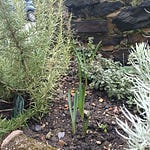Do you find it easy to receive a ‘yes’ email? In this post, I address that moment when your proposal, application, or approach is met with yes. I don’t know about you, but while I find it relatively straightforward to receive a no email, and even feel quite comfortable sharing the shame of rejection, I have never found it easy to own or share any success. So here I have gathered together some of my thoughts on getting a ‘yes’ email and the wider implications—acceptance and success. See if any of these work for you, do let me know through the comments or message me.
There is clarity in rejection—the next steps are to re-apply or to keep looking for opportunities. You pick yourself up and fight on. But in the face of acceptance, things can feel uncertain. You have to do what you said you were going to do—and that’s when you realise the flaws in your plan or the lack of clarity behind it, and that can feel exposing.
In the past, I received a particular yes that needed a lot of emotional processing. I didn’t know that at the time and I immediately met up with the other people who received the same yes. In that context, I felt emotional, overwhelmed, and disassociated with the yes. I didn’t know how to feel it or own it. That was a formative moment for me and since then I’ve learned that I need to sit with acceptance emails for longer than I do rejections. When they arrive, I sit with them for a while before telling anyone else—the larger the yes, the longer I need to keep it to myself, up to a few days. Even then, it’s a slow process before I can talk about it fluently and openly, without shame or embarrassment.
I thought about this need to sit with a yes before I could talk about it. I developed some more understanding when I gave another artist a compliment on her work–I felt she’d really developed the quality and consistency of her art in her recent exhibitions. Immediately she refused the compliment–she told me about how hard her relative success has been and the difficulties she was experiencing. None of these things negated her art though, I thought. Her work is good. And she wants her work to be validated—this drives her ambition. But I saw that when she received validation, she immediately refused it.
It was interesting to see this mechanism in someone else because it clarified my own relation to yes/success, and I thought more deeply about this. I realised then that the task for us as artists is to own our work, our trajectory and success, otherwise, we are constantly disavowing it. In not owning our work, it’s as though we are unconsciously saying ‘I didn’t make that’.
The challenge then is to receive our yeses and even compliments in good grace. To receive, feel, internalise, and believe them. The first step, I think, is to feel gratitude–to be grateful for what we receive. I know from experience that it can feel elusive to feel grateful if we’re unconsciously struggling to believe in the credit being given and to accept it. So, if gratitude for the particular feels difficult, then feeling gratitude in general, can help. One of the most grounding (and nuts!) cure-alls in my toolkit, is to go for a walk or bike ride in the woods. I sing my thanks to everything I see: literally, I say ‘thank you trees, thank you grass, thank you leaves’. I keep going and going and going and when I run out of things I can see I think the microbes and mycelium I can’t see. I sort of end saying ‘thank you for all the little things’. It’s a kind of reverie of reverence for the things we take for granted. I know, it sounds crazy, but this is my emergency routine when I feel unmoored.
To receive a yes with good grace, I think of developing an internal trophy cabinet. I don’t mean a gaudy, showy trophy cabinet. I envisage something modest and personal. A place inside yourself to put your accomplishments. The task is to hold our success with good grace—to have our own personal relationship with our achievements, making them real inside us, so that we can make sense of acceptance, validation, and compliments. To own our trophies. Without an internal trophy cabinet, those trophies have no where to go. Without having a place to put our trophies, we unconsciously refuse them, turn them away: ‘No, that’s not mine, I didn’t do that’.
I suggest we own our trophies, we refuse shame around them, we accept compliments, all with good grace. This doesn’t mean over-identifying with the trophies—they are signs and not the work itself. The work we do is the most important thing—and really, cultivating equanimity around any external yes or no is how we can stay connected to our own sense of autonomy and joy in what we do. And that’s what I hope for you.
If you would like support in reviewing (or leveraging) your trophy cabinet we can do that together! You can book in a free 20-min discovery call with me to see if I can help.
I can also support you in your own creative nurturing on the one-day retreat I’m leading with Ric Stott on 28th September, get in touch if you are interested.
Please do forward these posts on if they speak to you, and let me know if there are any topics you’d like to me to write about too.












